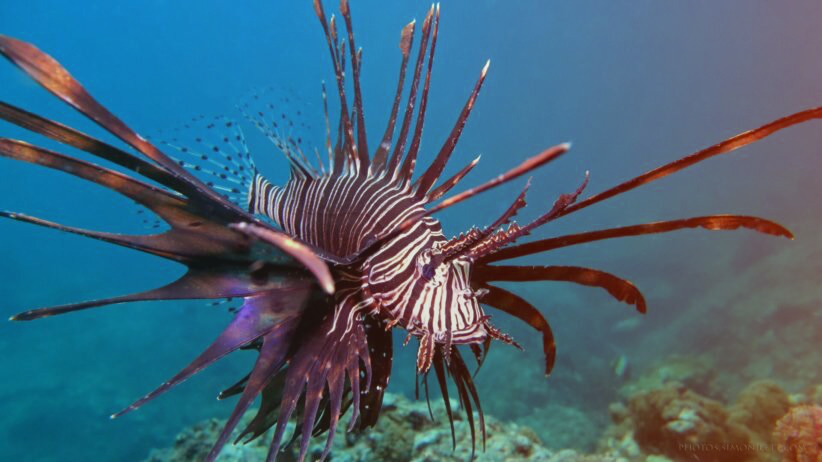
Lionfish
Invasion.
Make it stand out.
The Lionfish is a venomous marine fish. It is native to the Indo-Pacific. The Lionfish is an invasive species to the western Atlantic, the Mediterranean Sea, and to the Caribbean Sea.
Other Names.
The Lionfish is also called firefish, zebrafish, tastyfish, turkeyfish, or butterfly-cod. The fish is categorized by striking coloration with white, red, creamy, back bands, and its showy pectoral fins. The lionfish is also known for its venomous spiky fin rays.
Lionfish, Pterois.
Two of the estimated 12 species of lionfish, Pterois (the common and the red lionfish) established themselves as an aggressive invasive species along the East Coast of the United States the Caribbean Sea. Many have described the lionfish as one of the most aggressive invasive species on the planet.
The Invasion.
The introduction of lionfish into the Atlantic and the Caribbean Sea occurred in 1992 when Hurricane Andrew dismantled a local aquarium in southern Florida. There are other working theories as to how the lionfish was introduced to them, but the accidental release by Hurricane Andrew is the most accepted theory. Lionfish were detected in the Bahamas in 2004, and by June of 2013, lionfish were discovered in the far eastern Caribbean, in Barbados. Today, lionfish have been spotted as far south as Brazil.
Why they Succeed.
No natural predators.
The lionfish is known for devouring other fish populations, and they have no natural predators. They also reproduce quickly. These three factors account for the rapid spread of lionfish throughout the Atlantic and Caribbean. The lionfish is an innate adaptor and as a species is successful at establishing populations in open marine systems. Many aquatic species are limited in their spread because they are susceptible to changing oceanic temperatures. But the lionfish show high tolerance as it has managed to spread across a variety of ocean temperatures.
Initiatives.
The lionfish invasion is the most severe threat to the Caribbean and Atlantic coral reef ecosystems.
The long-term effect of the invasion can only be controlled by rigorous and repeated removal. Because lionfish can reproduce monthly, it is essential that a regular harvest is in place.
On Roatan, several groups and dive operators have organized hunting expeditions for lionfish. The hunts are often referred to as "lionfish derby."
While culling by our marine organizations and dive operators are essential, it is necessary that lionfish population be also controlled by a market-based harvest which creates commercial incentives for the removal of lionfish.



